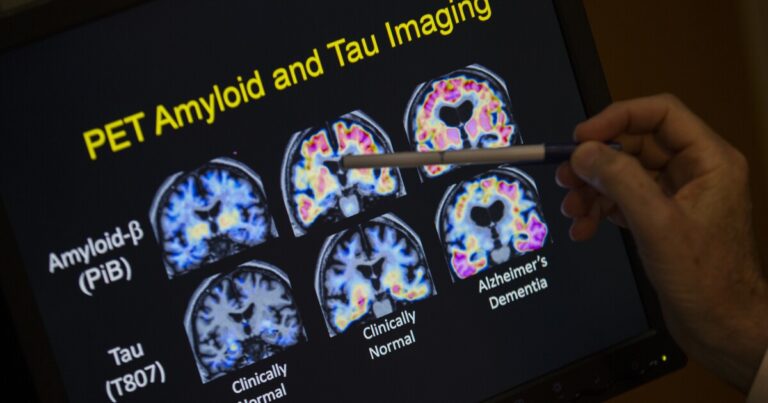More than 135,000 Massachusetts residents age 65 and older had Alzheimer's disease in 2020, according to a new report. This number represents about 11% of the state's population in the same age group, and is an increase of about 5,000 people from the previous year.
While these numbers may seem disturbing, they are consistent with larger national trends, according to the Alzheimer's Association's annual report. The nonprofit says this also reflects the increased demand for health care workers who treat this patient population.
“This is largely due to the aging of the population, especially the baby boomer generation,” said Jim Wessler, CEO of the Massachusetts and New Hampshire chapter of the Alzheimer's Association. “They are now moving into their 60s, 70s and 80s, and age is now the biggest risk determinant for Alzheimer's disease.”
More than 1,500 Massachusetts residents will die from Alzheimer's disease in 2021, making it the seventh leading cause of death in the state. Nationally, it is the fifth leading cause of death.
The association says the disease is also taking a toll on those caring for loved ones with Alzheimer's disease.
“More than half of dementia caregivers in Massachusetts report at least one chronic condition,” Wessler said. “Just because you’re a caregiver doesn’t mean you don’t have your own pain and illness, and 20% report suffering from depression.”
The report says Massachusetts doesn't have enough health care providers to meet growing demand. The report says states will need to increase the number of geriatricians by 62% to meet projected demand in 2050. Care for Alzheimer's patients will also require him to hire 27% more home health and personal care aides over the next six years.
“This suggests that the state needs to take some steps to address some of the workforce crisis we face,” Wessler said.
The Alzheimer's Association is sponsoring several bills in state legislatures that would encourage careers in caring for people with dementia.
However, there are signs of hope.
“Finally, we are calling this the era of treatment,” Wessler said. Last year, the FDA approved a new drug called Rekenbi that has been shown to slow cognitive decline, and Medicare agreed to cover it. But Wessler said labor shortages are slowing the rollout of treatments in Massachusetts.
“There is a lack of experts who can make a formal diagnosis,” he said. “Primary care does not yet have the capacity to screen and diagnose, and health care providers do not yet have the appropriate staffing and systems to provide this at the scale needed.”
Wessel said the number of deaths from Alzheimer's disease is increasing nationally and in Massachusetts, and it disproportionately affects people of color.
“African Americans are about twice as likely to develop Alzheimer's disease as white people, and Latinos are about 1.5 times as likely,” Wessel said. “Many of them are intertwined with cardiovascular risk factors. We know that stroke, heart disease, and diabetes increase the risk of Alzheimer's disease, and those conditions are disproportionately seen in those people. ”


